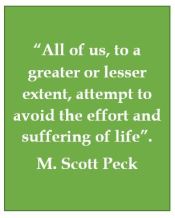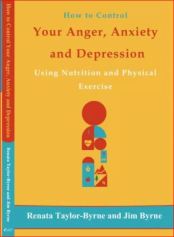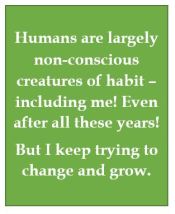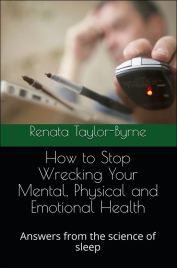Blog Post – 8th May 2020
Updated on 30th September 2021
Copyright (c) Jim Byrne 2020/2021
~~~
Coping with anger, anxiety and trauma in the era of Covid-19:
Some insights; plus a personal story of anxiety/anger; and some guidelines for maximizing your own happiness and health
By Dr Jim Byrne, Doctor of Counselling
~~~
Preamble (update)
 As Covid-19 lockdown draws to an end – scheduled for 19th July 2021 (in the UK) – some individuals will celebrate by getting out and about, taking off for holidays (vacations), and generally adding to the population of the world through “enjoyable social activities”!
As Covid-19 lockdown draws to an end – scheduled for 19th July 2021 (in the UK) – some individuals will celebrate by getting out and about, taking off for holidays (vacations), and generally adding to the population of the world through “enjoyable social activities”!
On the other hand, some people will feel too scared to venture out; partly because they have underlying medical conditions which make them vulnerable to catching serious forms of Covid-19; and partly because they have been so traumatized by the whole Covid-19 pandemic. These individuals will tend to be those who had been traumatized at a young age – victims of Complex-PTSD, in childhood. If you find you are too traumatized to resume a more normal lifestyle; or too anxious to get out there and risk infection; then I can help you with my three-part Trauma Treatment Protocol; and with my Stress/Panic Desensitization Process.
If you need help adjusting to post-lockdown “Freedom”, then I can help you. Please contact me today to discuss my process and how we could work together.
My service is not cheap, but the cost of freedom and happiness should not be set too low!
For more about my services, please go to the page About Dr Jim Byrne.***
Best wishes,
Jim
Jim Byrne, Doctor of Counselling, ABC Coaching and Counselling Services
Telephone: 01422 843 629 (from inside the UK)
Or phone: 44 1422 843 629 (from outside the UK)
Or email me: Dr Jim’s Email Address.***
~~~
Introduction
Here is a relevant little quotation that I hope you find helpful:
“Nothing lasts and all unhappiness is caused by trying to hold on to what is fundamentally impermanent”.
Sogyal Rimpoche
~~~
 Covid-19 is the most dramatic crisis to hit the world since the First and/or Second World War. It threatens all of our futures to varying degrees. It wakes us up to something we had tried to forget for decades: That we are already/always insecure, as human beings, living on Planet Earth.
Covid-19 is the most dramatic crisis to hit the world since the First and/or Second World War. It threatens all of our futures to varying degrees. It wakes us up to something we had tried to forget for decades: That we are already/always insecure, as human beings, living on Planet Earth.
Many years ago, Alan Watts wrote a book entitled The Wisdom of Insecurity. I read it in 1979 or 1980, and came to realize that life is fragile and fleeting, and it always ends in death, whether or not wars occur; and whether or not viruses arise.
Or, we could say: ‘Life and death are the life of the Buddha’, to quote a famous line from a Buddhist text. Life and death are the life of each of us. We are born, we grow and develop. And then we die.
To cope with this reality, it helps if you teach yourself to keep your mind focussed on the present moment – and not on tomorrow or next week. This idea is well illustrated in the following quotation:
“The Japanese warrior was captured by his enemies and thrown into prison. At night he could not sleep, for he was convinced he could be tortured the next morning. Then the words of his master came to his mind:
‘Tomorrow is not real. The only reality is now’.
“So he came to the present and fell asleep”.
Connie Harrison (editor), Words of Hope.
~~~
Understanding your situation
 Most of us have probably worked very hard to suppress that awareness for most of our lives – that life is insecure, fragile, and always ends in death. So it is not surprising that being woken up to this reality by Covid-19 has made most of us very anxious; and some of us very angry and/or depressed. And the anxiety may get worse, for many of us, when the lockdown is phased out.
Most of us have probably worked very hard to suppress that awareness for most of our lives – that life is insecure, fragile, and always ends in death. So it is not surprising that being woken up to this reality by Covid-19 has made most of us very anxious; and some of us very angry and/or depressed. And the anxiety may get worse, for many of us, when the lockdown is phased out.
Some of us are in better locations than others, and better able to protect ourselves from the virus:
– Think of the medical staff who have to travel to work every day, and put their own health and indeed their lives on the line in order to try to save lives and help people to recover from this dreadful illness;
– Think of the police and the young soldiers who are out there managing lockdown and virus testing;
– The staff who work in the essential shops which keep our food and other necessities available to us; and the drivers who deliver those goods, sometimes two people in one cab; working through the night, which compromises health under normal circumstances;
– And the farm workers, working in close proximity to each other, who will have to bring in the harvest, so we can eat later in the year.
To name but a few.
And if you are fortunate enough to be in lockdown, or furloughed, then you are in many ways in a much better position than the essential workers.
 But you are also in danger because:
But you are also in danger because:
– Your mind can run you ragged, worrying about the disease, and the financial situation;
– Your interpersonal skills (learned in your family of origin) can let you down, allowing you to engage in verbal or physical violence in your family home (and this applies to both men and women, as both victims and perpetrators. Twice as many women as men are victims of domestic violence! Half as many women as men are domestic abusers!) And domestic violence should also include a much bigger victim group: children. Most violence in the home is perpetrated against children by one or both of their parents! All of this violence is immoral and unconscionable, and it should be stopped; and if you do it, you should seek immediate help to stop! (See my earlier blog on Domestic Violence and Fair Negotiation).
– And if you stay in and hide all the time, then you miss out on the virus-killing sunshine and fresh air. (Get out for a one-hour walk every day – but keep your social distance of two metres!)
– And if you do not try to manager your mind, to reduce anxiety and anger and depression, then you may tend to comfort eat, while not exercising; and this will make you prone to obesity and diabetes, heart disease and cancer, which will make you more vulnerable to the virus.
So, what should you do?
~~~
Let’s look at some quick insights
“The greatest part of our happiness or success depends on our dispositions and not on our circumstances”.
Patrick Walker
~~~
 Firstly, you should try to keep your mind under control, and to minimize worry. The mind has a huge impact on the body, as indicated in this quotation which is my re-write of an original quotation by Mary Baker Eddy:
Firstly, you should try to keep your mind under control, and to minimize worry. The mind has a huge impact on the body, as indicated in this quotation which is my re-write of an original quotation by Mary Baker Eddy:
“Stand like a security guard at the entrance to your mental activity chamber. Do not allow any ideas of ill health or misfortune to preoccupy your mental activity, lest they solidify into realities. Our negative perceptions/thoughts/feelings can become realities, in both health and life circumstances, if we allow them to dominate our mental activity”.
Paradoxically, the best way to calm your mind is to calm your body, through daily physical exercise, and learning how to relax your muscles (called Progressive Muscle Relaxation). But there are also some ways of analysing and processing your thoughts/ feeling/ perceptions, which I will illustrate in a story below.
~~~
Many years ago, I read the Tao Te Ching, by Lao Tzu – which was recommended to me by Renata, who subsequently became my partner (of 41 years) and later my wife (of 34 years). One of the lines that stayed with me from that book was this:
– “When dealing with people, be gentle and kind”. This is a helpful guideline for all of us.
Later I read a book entitled The Tao of Leadership, and the line I remember most vividly from that book was this:
– “Dealing with other people is like cooking very small fish. If you are not careful, they become broken”. Do not relate to your family members as if they are brick outhouses. Remember, they are, deep inside, just like fragile little fish.
 I hope you bear these ideas in mind when stress levels rise in your home (and/or in work), and that you remember to treat others kindly, and that they in their turn treat you kindly.
I hope you bear these ideas in mind when stress levels rise in your home (and/or in work), and that you remember to treat others kindly, and that they in their turn treat you kindly.
One of the books that I recommend most often to many of my counselling clients is this: Jack Kornfield’s The Art of Forgiveness, Lovingkindness and Peace. The blurb on the back cover says this:
“You hold in your hand an invitation: To remember the transforming power of forgiveness and lovingkindness. To remember that, no matter where you are and what you face, within your heart peace is possible”.
Try to forgive those members of your family who rub you up the wrong way. And try to forgive the world for its current cruelties.
~~~
And finally, if you are weighed down by anxiety about illness and potential death, let me offer you the salve developed by Buddhism. It begins as a distinction between your body – which was born – and your mind, which was evolved over time, through social experience. The way this is expressed in Buddhism is this: “The unborn is the undying”.
What does that mean? It means that your body will die; but your mind, which was never born, will never die. It may cease to function as ‘your mind’ (we don’t actually know anything about that!), but it does not die. The brain that underpins your mind will die; but your mind is just
– a capacity to be aware; to perceive/feel/think…
– and a load of stored experiences and skills…
– and a personal story about where your body has been on its journey through life.
~~~
A more ambitious way forward
“Health is the only thing that makes you feel that now is the best time of the year”.
Franklin Adams
~~~
So let us now posit a place that you could (theoretically) get to, which would help to minimize your anxiety, depression, and tendency towards anger; and also strengthen you to cope with the coronavirus. This stage is what Dr Edward De Bono called “an intermediate impossible”: something which you cannot achieve, but which will build a bridge to what you can achieve!
 The intermediate impossible that I want to mention is this: That you could quickly learn to manage your diet, exercise, sleep, relaxation, meditation, and self-talk, all at once. Because, if you could, it would be very difficult for you to feel very much worry and anxiety at all; or depression; or anger. And your immune system would quickly kill any viruses that invaded it.
The intermediate impossible that I want to mention is this: That you could quickly learn to manage your diet, exercise, sleep, relaxation, meditation, and self-talk, all at once. Because, if you could, it would be very difficult for you to feel very much worry and anxiety at all; or depression; or anger. And your immune system would quickly kill any viruses that invaded it.
However, in practise, you are a largely non-conscious creature of habit, who will find it difficult to change any habit. You can normally only change one thing at a time! (And if you find it difficult to change any bad habits at all, then you can learn by consulting our book, How to Control Your Anger, Anxiety and Depression: Using nutrition and physical exercise).
But first, we need to help you to prioritize which of the habitual behaviours – mentioned in the ‘intermediate impossible’ above – you should set out to change first.
~~~
So, what should you change?
Before we begin to look at what you could prioritize as something to change – which would reduce your problems of anxiety, anger and/or depression; and also make you less vulnerable to the virus, by strengthening your immune system – let me tell you a story about my own approach to personal habit change:
 One of the things that I do to control my mind and to manage my life is to write things down. At the moment, I spend about half an hour each morning writing what Julia Cameron called ‘Morning Pages’; about three pages of stream of consciousness; which provide an opportunity to chew through what went wrong (or right) yesterday; and what I want to (or need to) do today.
One of the things that I do to control my mind and to manage my life is to write things down. At the moment, I spend about half an hour each morning writing what Julia Cameron called ‘Morning Pages’; about three pages of stream of consciousness; which provide an opportunity to chew through what went wrong (or right) yesterday; and what I want to (or need to) do today.
The story I want to tell you was written down in yesterday morning’s Pages, as follows:
I like to think of myself as a calm, reasonable and rational individual with high emotional intelligence. I think I am gentle and kind, and well able to manage my emotions to keep them within reasonable bounds; not too high, and not too low.
Yesterday something strange and slightly disturbing happened, which seems to be a result of the (unrecognized) stresses and strains of the Covid-19 social distancing rules.
Renata and I went out for our daily (legal) walk near out home. At a certain point, where the road is narrow (just over two metres wide), and there are no pavements, a cyclist came down the middle of the road, while Renata and I stood on the right hand side. He was cycling directly behind a woman (his girlfriend/wife?) who was jogging. My expectation was that they would move over to the left as they approached us, in order to maintain roughly two metres of social distance. But they stuck to the centre of the road.
 When they were getting very close to us, I suddenly looked him in the face, angrily, with the intention of ‘willing him’ to move further over the road, away from us (so he could not infect us with Covid-19, if he was infectious). Then, when he was about two metres before the point at which he would pass me by, and without realizing that I would speak, I said (in a fairly quiet, but angry voice): “Move over, you c**t!” These words just popped out of my mouth, unbidden.
When they were getting very close to us, I suddenly looked him in the face, angrily, with the intention of ‘willing him’ to move further over the road, away from us (so he could not infect us with Covid-19, if he was infectious). Then, when he was about two metres before the point at which he would pass me by, and without realizing that I would speak, I said (in a fairly quiet, but angry voice): “Move over, you c**t!” These words just popped out of my mouth, unbidden.
The next thing that happened was that I felt very shocked that I used the ‘C’ word. I was shocked that I was so angry. (I am an anger management specialist!) (Postscript: Upon reading this back, I notice that I did not judge the woman to be culpable, even though she was in the leading position! Interesting!)
After the cyclist passed, I noticed he was looking back at me angrily. Perhaps he’d heard what I said; or been able to read my lips; or he decoded by body language.
So, I’d upset myself; and I’d upset him. And what had I achieved? Nothing useful. I did not get what I wanted (in terms of social distancing). I did not teach anybody any lessons. (He most likely had no idea how I had perceived him, other than negatively. And he most likely believed, sincerely, that he had done nothing wrong.)
Except – I now realize – that I was about to teach myself a lesson.
I felt bad about how I’d responded to this invasion of my social distancing space. I felt guilty that I could (potentially) have caused an accident, by distracting him from his cycling. I felt fear that I could have precipitated an ugly scene of verbal conflict; or even physical conflict with him.
 As I write these notes this morning, I realize that this is a major learning experience for me. I realize that I am quite demanding that people should and must follow the government’s guidelines in an intelligent manner, and never get closer than two metres from me. (I also realize that this has been building up over time. This is not the first time I’ve felt angry towards somebody who mindlessly walked too close to me. But I failed to pay sufficient attention to what was happening (inside of me, in response to those ‘invasions’); and I made excuses – I distinctly remember – for my aggressive responses – instead of correcting myself).
As I write these notes this morning, I realize that this is a major learning experience for me. I realize that I am quite demanding that people should and must follow the government’s guidelines in an intelligent manner, and never get closer than two metres from me. (I also realize that this has been building up over time. This is not the first time I’ve felt angry towards somebody who mindlessly walked too close to me. But I failed to pay sufficient attention to what was happening (inside of me, in response to those ‘invasions’); and I made excuses – I distinctly remember – for my aggressive responses – instead of correcting myself).
I have tended to damn anyone who breaks the rules, in relating to keeping their distance from me and/or my wife; and that makes me angry at them. And resentful: which is like taking poison, and waiting for them to die! This harms my body and lowers my mood for a protracted period of time. Meanwhile, the person at whom I am angry may be having a ball, oblivious to the effect they have had on me. So the ultimate harm is all done to me, by me.
I must learn to apply my own Window No.1 (from my Nine Windows Model) to social distancing problems. This is it:
“In life, there are certain things I can control, and certain things that are beyond my control”. And a good way to get upset and stay upset is to try to control the uncontrollable! (Of course, if something [which is important to me] is potentially controllable, I should try, within reason, to control it!)
Therefore, I will always try to put two metres between me and everybody else in public places. But I will not insist that they be as diligent, or intelligent as me, in keeping their distance. I’d prefer it if they kept their distance, but it’s not essential to make them do so! It may be bad for me if they get too close, but I don’t run the universe!
 I’m sorry I was so aggressive yesterday. It won’t happen again; I am determined to make sure that it does not. That is my commitment! I will stop calling people ugly names (in my head) if they prove to be unintelligent, or incompetent, or uncooperative in maintaining social distancing rules.
I’m sorry I was so aggressive yesterday. It won’t happen again; I am determined to make sure that it does not. That is my commitment! I will stop calling people ugly names (in my head) if they prove to be unintelligent, or incompetent, or uncooperative in maintaining social distancing rules.
That aggressive behaviour on my part was uncharacteristic, but then I am very new to being involved in a death-inducing viral pandemic. (And I am over the age of 70 years, and I’ve been sent a powerful ‘nocebo’ [or negative self-fulfilling prophesy] by the state to the effect that my age puts me, automatically at risk! Although I think the strength of my immune system is just as important as my age, nocebos, sent by authoritative voices, have powerful influences, outside of conscious awareness!)
I spent years teaching myself the idea, from Epicurus, that I should “get accustomed to the idea that my death means nothing to me”, for, as he argued, all good and evil consist in sensations, and death is only the deprivation of sensations. Therefore, it makes no sense for any person to fear their own death, for when death arrives, they will have (simultaneously) departed. And if they are here (and aware of being here) then death has not arrived.
I was totally reconciled to my own death. The deaths of my nearest and dearest is another matter. Their deaths will hurt me, deprive me, cause me grief, and render my life less joyful. But my own death means nothing to me. (Except that I want to stay alive for my nearest and dearest; and for the fun of it!)
But then Covid-19 crept up on me; blindsided me; and I am having to learn all over again that “If I die, I die!” That only my body will die, because it alone was born. My mind cannot die, because it was never born. And that my death means nothing to me, because I am here, and my death is not!
 I will try to avoid the sickness of Covid-19; and I hope my immune system is strong enough to keep me alive if I contract it. (I work at strengthening my immune system in various ways; in particular with eight hours sleep each night; eating the right foods; avoiding the wrong foods; exercising every morning at home; and getting out for a one hour walk in the sunshine and fresh air every day; and relaxing my body, and meditating to calm my mind. Plus I have identified a range of supplements which can actively fight Covid-19; anti-viral supplements which kill Covid-19 on contact!).
I will try to avoid the sickness of Covid-19; and I hope my immune system is strong enough to keep me alive if I contract it. (I work at strengthening my immune system in various ways; in particular with eight hours sleep each night; eating the right foods; avoiding the wrong foods; exercising every morning at home; and getting out for a one hour walk in the sunshine and fresh air every day; and relaxing my body, and meditating to calm my mind. Plus I have identified a range of supplements which can actively fight Covid-19; anti-viral supplements which kill Covid-19 on contact!).
However, if, after all that, it transpires that I die from Covid-19; then I die; or my body dies; and at the moment that death arrives, I will no longer be here to lament my own passing!
So let me live today fully so that I do not regret my (potentially) last day on Earth
~~~
That’s the end of my story, from this morning’s Pages.
~~~
Let’s look at your situation, and your options
So, now it’s your turn.
 Why don’t you think about which aspects of your life and lifestyle you need to change, in the light of the Covid-19 pandemic crisis?
Why don’t you think about which aspects of your life and lifestyle you need to change, in the light of the Covid-19 pandemic crisis?
I have listed various lifestyle factors above which could make a big difference to your physical and mental health and happiness. You may already have some of them under control. An approximately accurate prioritized list of lifestyle factors that need to be well managed, if you want to be healthy and happy, include the following:
– Because the health of your lungs are crucial in handling any infection by Covid-19, if you are a smoker, or a vaper, you should stop that at once. (If you don’t know how to change bad habits, then you can learn by consulting our book, How to Control Your Anger, Anxiety and Depression: Using nutrition and physical exercise).
– Eight hours of sleep, as a minimum, every night, without disturbances; (If you suffer from insomnia, you need to fix that fast; and we can teach you how, via Renata Taylor-Byrne’s book, How to Stop Wrecking Your Mental, Physical and Emotional Health (as a result of inadequate sleep quality and quantity)
– Because it is so important for reducing tension and anxiety, and facilitating restorative sleep, Progressive Muscle Relaxation should be the next priority. This system is described in our book: Cutting through the Worry Knot! How to Reduce and Control Your Anxiety Level: Using a whole body-brain-mind approach; and without using drugs, alcohol or escapism!)
– At least one hour of physical exercise every day… (Walking is perfectly adequate; but the most effective forms of exercise for anxiety, depression and anger control are yoga and Tai Chi or Chi Kung, which are discussed in our book: How to Control Your Anger, Anxiety and Depression: Using nutrition and physical exercise).
– The next aspect of your lifestyle to consider is your diet and nutrition, which is intimately connected with both your physical health and your emotional states. See our book: How to Control Your Anger, Anxiety and Depression: Using nutrition and physical exercise).
 – And last, but by no means least, you need to consider whether or not your philosophy of life is supporting you or undermining you during this dreadful pandemic. Your philosophy of life consists of a network of beliefs and attitudes.
– And last, but by no means least, you need to consider whether or not your philosophy of life is supporting you or undermining you during this dreadful pandemic. Your philosophy of life consists of a network of beliefs and attitudes.
I illustrated one of the most important of those beliefs/attitudes when I wrote about Window No.1, above: There are certain things you can control and certain things which are beyond your control. And if you try to control the uncontrollable, you will be endlessly stressed and anxious, and depressed when your efforts fail.
My Nine Windows Model is one of the best ways to change your philosophy of life, from one that does not support you, to one that will keep you resilient, but flexible, in the face of any and every threat or danger. The best place to read about this philosophy of life, and technique for self-training, is in our book about anxiety: Cutting through the Worry Knot! How to Reduce and Control Your Anxiety Level: Using a whole body-brain-mind approach; and without using drugs, alcohol or escapism!
Another of our books that helps you to build an empowering philosophy of life, to cope with all kinds of external pressures, is this: The Bamboo Paradox: The limits of human flexibility in a cruel world – and how to protect, defend and strengthen yourself.
Then there’s the problem of angry clashes and conflict at home. We can help with this problem, including via our books on conflict resolution,
– How to Resolve Conflict and Unhappiness.
And anger management:
– Anger, resentment and forgiveness: How to get your inappropriate anger under reasonable control
~~~
And if your situation is such that you do not want to take the time to read a book or two to support you through the Covid-19 crisis, you can always consult me – Dr Jim Byrne – via the telephone, or Skype, or Email, for help, support Psychological First Aid, counselling, coaching or deep psychotherapy.
~~~
 To consult Dr Jim Byrne, Counsellor/ Psychotherapist, please email Dr Jim at ABC Counselling and Psychotherapy
To consult Dr Jim Byrne, Counsellor/ Psychotherapist, please email Dr Jim at ABC Counselling and Psychotherapy
~~~
Or take a look at his main web page: About Dr Jim Byrne.***
~~~
Or take a look at Dr Jim’s Online Counselling Services.***
~~~
Let me leave you with this final thought, from Jack Kornfield’s wonderful book, mentioned above:
“Anger, blame, conflict, and resentment arise from our fear. When we are afraid, our body tightens, our heart is constricted, our mind is possessed. We cannot live wisely.
“Forgiveness releases us from the power of fear. It allows us to see with kindly eyes and rest in a wise heart”.
I forgive myself for my stupid, aggressive behaviour on the road two days ago, and on various other occasions leading up to that event.
I forgive all those individuals who have (consciously, or, more likely, non-consciously) invaded my social distancing space.
You could meditate on these ideas; or just sit quietly counting your breaths in and out. Or you could recite the following words, to calm and ground yourself:
“All will be well. And all will be well. And all manner of things will be well”.
Recite them, over and over again, quietly in your mind, believing strongly that “this too will pass!”
~~~
Meditation is about keeping your mind focused on the present moment. Anxiety arises when your mind drifts into the future and focuses on potential threats or dangers. Depression arises when we lament the past.
An Indian Zen master pointed us in the right direction when he said:
“Most people spend their lives either in the past or the future, but my life is supremely concentrated in the present”.
Dan Millman, The Inner Athlete.
~~~
Take care, until the next time.
Jim
 Dr Jim Byrne,
Dr Jim Byrne,
Doctor of Counselling
For telephone, Skype and email counselling, coaching and psychotherapy
Telephone 01422 843 629 (from inside the UK)
Or: 44 1422 843 629 (from outside the UK).
~~~

 Millions of people are going through terrible uncertainty and fear for their families and their incomes at the moment, all over the world, because of Covid-19.
Millions of people are going through terrible uncertainty and fear for their families and their incomes at the moment, all over the world, because of Covid-19. I have recently co-authored a book on
I have recently co-authored a book on  Knowing the effect of worry on the central nervous system can be very useful. It’s important to know what the bodily price tag is for worrying. Awareness of the physical effects of worrying can protect you against allowing worry to take over your mind. If you know you are harming yourself, you are less likely to allow worry to dominate your mind.
Knowing the effect of worry on the central nervous system can be very useful. It’s important to know what the bodily price tag is for worrying. Awareness of the physical effects of worrying can protect you against allowing worry to take over your mind. If you know you are harming yourself, you are less likely to allow worry to dominate your mind. So what can we do to handle the uncertainty of this present health crisis?
So what can we do to handle the uncertainty of this present health crisis? Meditation is an extremely simple process, and there are a lot of different techniques. One of them is called ‘breath counting’, and is said to have been recommended by the Buddha Gautama, about 2,500 years ago. You simply count your breaths, over and over again from one to four, as you breathe in and out.
Meditation is an extremely simple process, and there are a lot of different techniques. One of them is called ‘breath counting’, and is said to have been recommended by the Buddha Gautama, about 2,500 years ago. You simply count your breaths, over and over again from one to four, as you breathe in and out.
 Renata Taylor-Byrne
Renata Taylor-Byrne